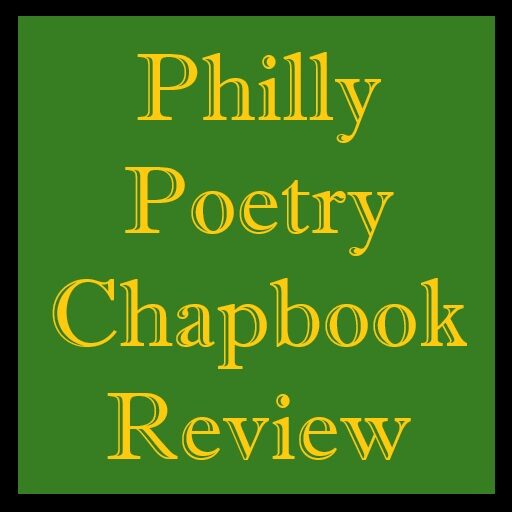Due to difficulties in obtaining information in advance of chapbook releases, chapbook listings for the previous month are published at the end of each month. This post contains information about poetry chapbooks that we know about published during February 2025.
Information, including product descriptions, is provided by the publisher and not a critical judgment. If we cover the book on this site, links will be included.
Harbor Editions
waveforms: a short course in piano tuning, Andrea L. Hackbarth
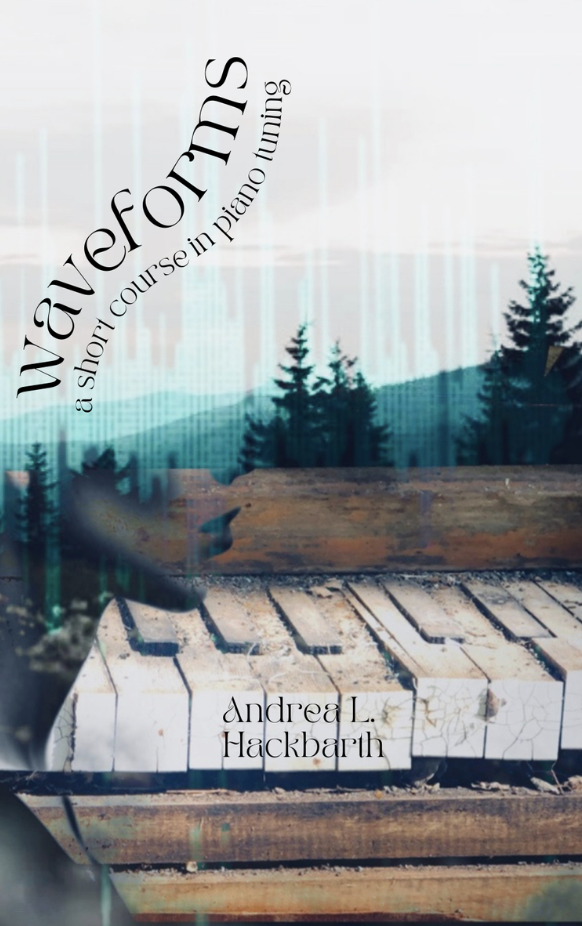
A poetic exploration into the art and science of piano tuning, using prose to delve into the intricacies of music and life.
Andrea L. Hackbarth is an accomplished musician and a published poet. She currently runs her own piano service business while also writing and editing for the Piano Technicians Journal.
BUNNY
Debt Ritual, Katie Naughton
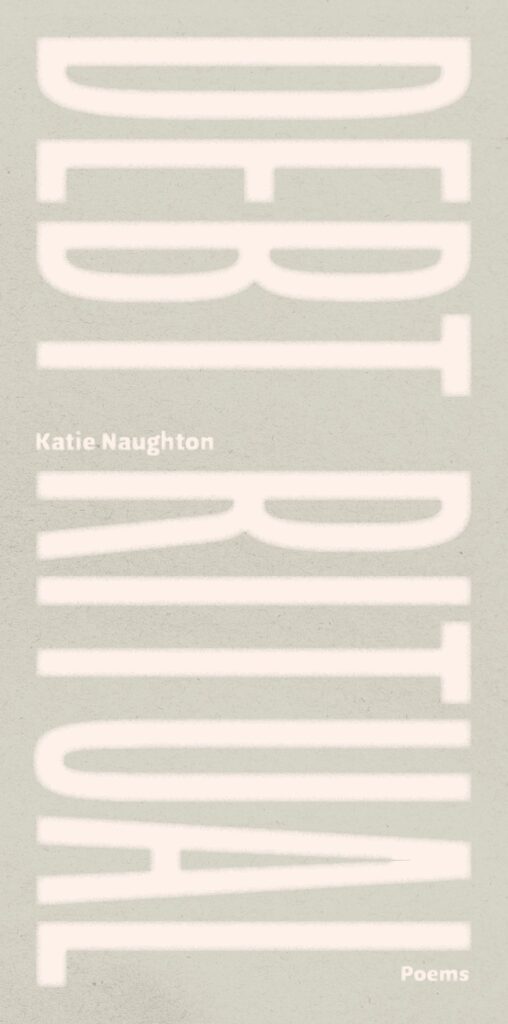
Winner of the 2023 BUNNY chapbook contest, Katie Naughton’s Debt Ritual sees debt as intensely private yet nevertheless significantly interconnected with global financial systems and other systems of power.
Naughton’s text is interested in the way that what appears as money is often funded by debt, while also taking into account the role of art, something that offers social capital without the accompanying wealth. Debt Ritual sets up an equivalence between money and participation in the world and then works to destabilize it. Sized as a dollar bill, Naughton’s book considers the ritualistic use inherent in money and debt and wonders how and if the ritual of art-making replicates — or interrupts — the rituals of finance.
Bottlecap Press
Like the Fog, Carmen Frech Oliveri
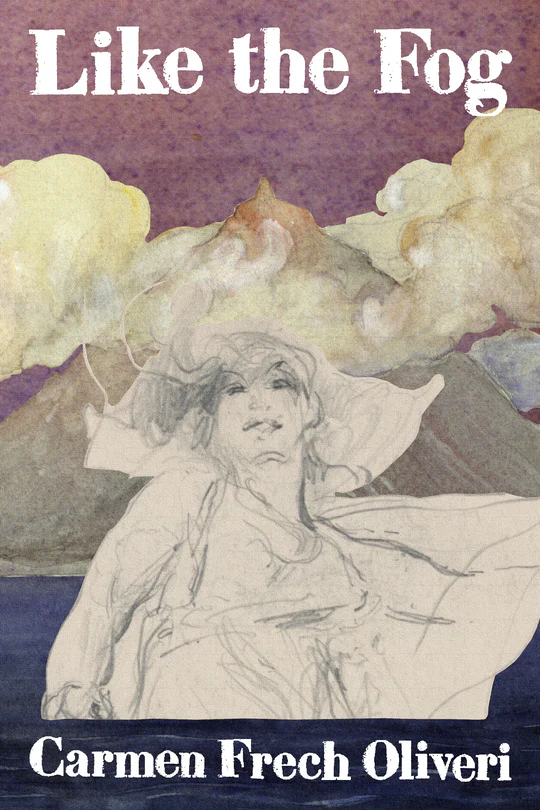
Like the Fog is the image of a woman, telling her story with the voice of a country whispering in her ear. The voice of other women, other centuries, other selves. Reading Like the Fog is not unlike being in the writer’s dream. You wish that you knew how to wake up or how to remain asleep, in a place where nothing is certain, except the sureness that we all wish to be alive, to be loved, to be forgiven.
A sample of the writer’s ability to weave themes of nostalgia, surrealness, death, trauma, love and the inevitable mutability of existence. In her own words, she writes the poems that needed to be written, if only for the virtue of being read once.
My Good Karma with Animals, Bridgette Leigh
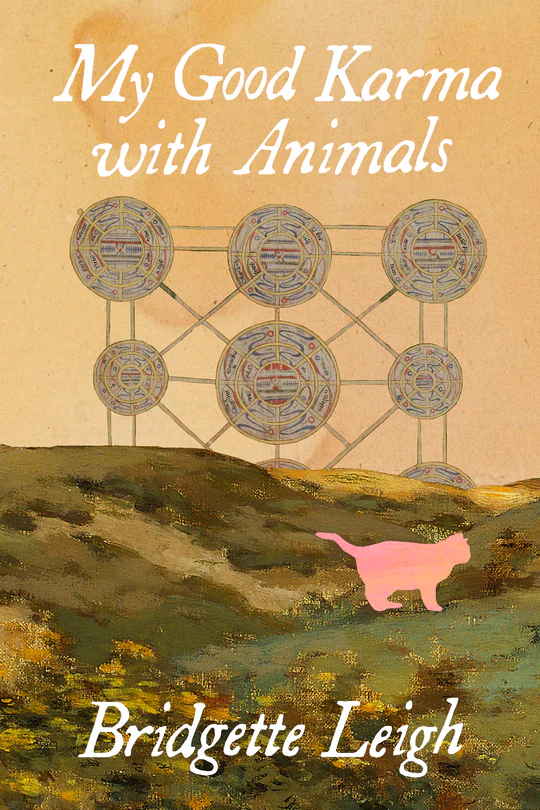
Bridgette Leigh’s debut chapbook, My Good Karma with Animals, explores, from both the foundation of spiritual knowledge, based in yoga and chanting mantras, and the foundation of therapy and recovery, the relationship between herself and animals that she’s come across in her life. How animals have befriended her, helped her, been her guides.
She then dives into the nature of human love, and relationships, marriage, divorce, widowhood, and then, childhood, mother and daughter, mother and offspring, both animal and human alike. The ferocious mother, the divine mother, the protective mother, are recurring themes in this work.
roadkill years, Abbie Hart
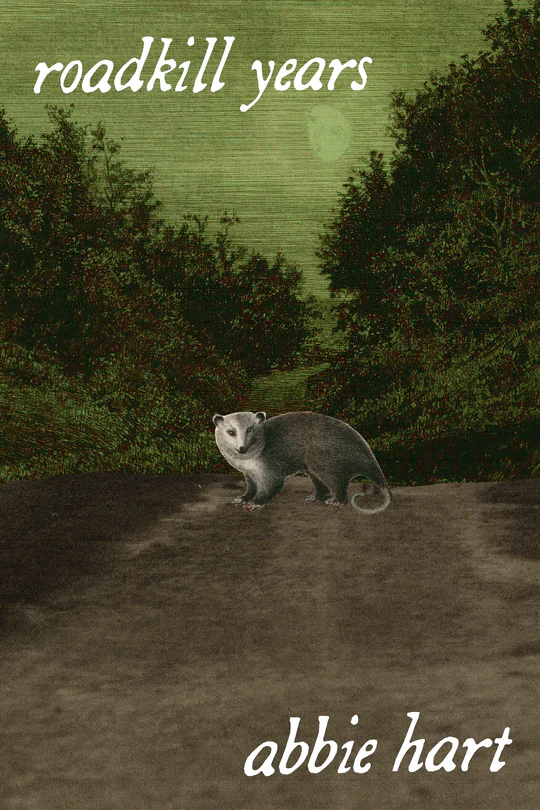
roadkill years is the possum waddling in front of your car, the green glint of a deer’s eyes picked up in your headlights, and forever sleeping armadillos on the shoulder. It is a remembrance of every time Abbie Hart’s parents murmured “sleeping” to her as they passed long-forgotten roadkill off of I-45 on the way to Galveston, Texas. It is about recognizing that you are roadkill, that you have always been roadkill, and that quite frankly, everything becomes roadkill.
This chapbook is comprised of 23 poems that will make you want to unzip your skin, but like, in a fun way. roadkill years will help you see that Abbie Hart is laying behind your car, waiting for you to back over her. Abbie Hart is softly asking you, is there Cinnamon Toast Crunch in heaven? Abbie Hart is clawing at herself like only an animal knows how. It’s time.
That’s the Way Love Goes, Kinsley Fisher
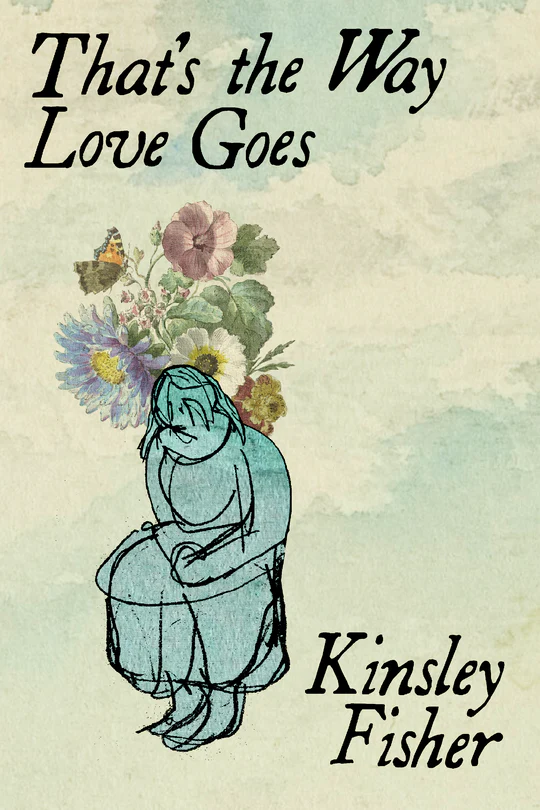
That’s the Way Love Goes is a series of poems developed throughout the past decade. Serving as a healthy outlet for expression and healing, the pieces are powerful, calm, beautiful, and at times, ugly. As the title may provide, this collection is about love. Earth-shattering love, heartbreaking love, love gone wrong, unwanted love, unfriendly love, quiet love, a heavenly kind of love, and the ultimate end goal of self-love.
These mostly fictional poems are encompassed with vulnerability and the harsh truth that love can be both good and bad. Throughout the book, the readers must come to terms with the realization that love is not always what it seems and that to discover self-love they may have to experience heartache. That’s the Way Love Goes is raw and honest, and proves that the greatest kind of love comes from within.
Love in Michigan, Adrienne Wright
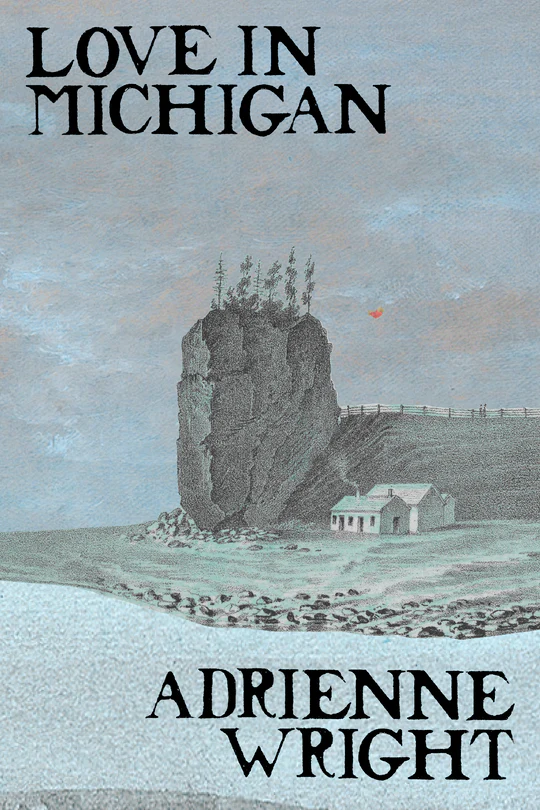
Love in Michigan is a meditation on love, loss, and the quiet beauty of passing time. Rooted in the landscapes of Michigan, these poems explore the ache of absence and the ways memory lingers in familiar places. The rustle of a warbler, the hush of snowfall, and the steady flight of geese unfold moments of longing, tenderness, and remembrance, grounding personal history in the rhythms of nature and revealing how love endures in the spaces we return to.
With language that is both spare and evocative, Love in Michigan moves with quiet reverence through personal history, carrying a deep awareness of time’s gentle and relentless passage. The poems embrace the bittersweet and celebrate what remains even as they reckon with change. At its heart, this chapbook is an invitation to see, in Michigan’s quiet corners, the echoes of our own love stories.
The Edited Tongue: A Family’s Year with ALS, Scott LaMascus
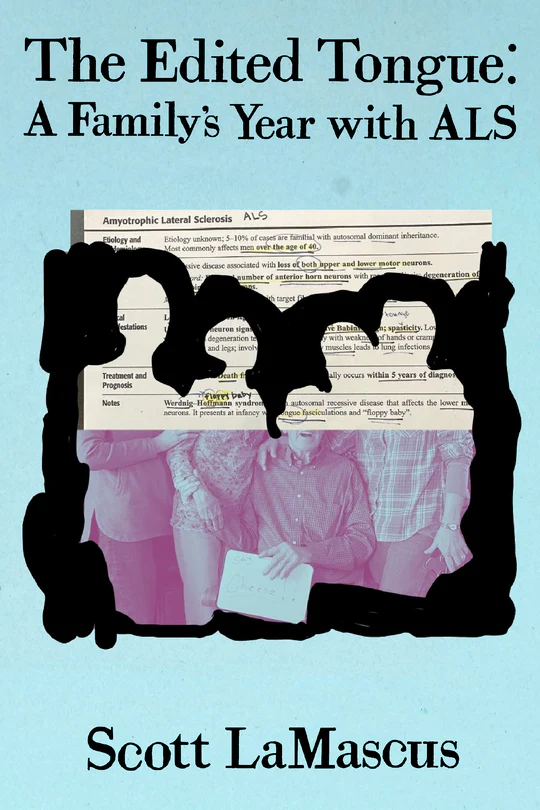
This medical memoir in verse arcs across a family’s challenges with late-onset ALS. The poems grapple first with the father’s literal loss of voice, then the frustrating search for a diagnosis, increased caregiving stress, and daily devastations of each new loss brought by the brutal disease called Lou Gehrig’s. Here the poet’s voice moves from grief through lyrics of humor, fantasy, lullaby and dirge. Hybrid and varied poem forms keep readers surprised, including the title poem, which selects as its foundation the prose of a 1990s-era medical-school study-card for ALS. Revealed editing marks allow the poem to contrast the textbook description of the disease with stark realities for patient and caregivers. Haiku-inspired poems punctuate the ALS year with grief-inflected peace and respite in an otherwise horrific progression. In one fantasy-laced poem, the point of reference for the father’s near-death experience is the prophet Ezekiel and his visions featuring celestial wheels and fiery chariots. Some poems trace quotidian life despite the diagnosis. In addition to care-giving, the family must prepare for tornado season. They must care for the cattle on their farm. The beauties and demands of each season roll onward. Amid it all, the family must find words and forms to mourn the man they know is dying. These poems seek such truths lyrically and with a poignant and articulate honesty. “You think you’ll know how to say goodbye” becomes their frank quest for a way to adequately toast a loved one’s noble and dignified passing. On the 162nd day after diagnosis, the poet declares his own goodbye and accepts the wounds of grief. Another poem references the ancient lore of Caladrius, the bird who watches over the sick bed and who controls the fate of patients.
Fallow Harvest, Taylor Pate
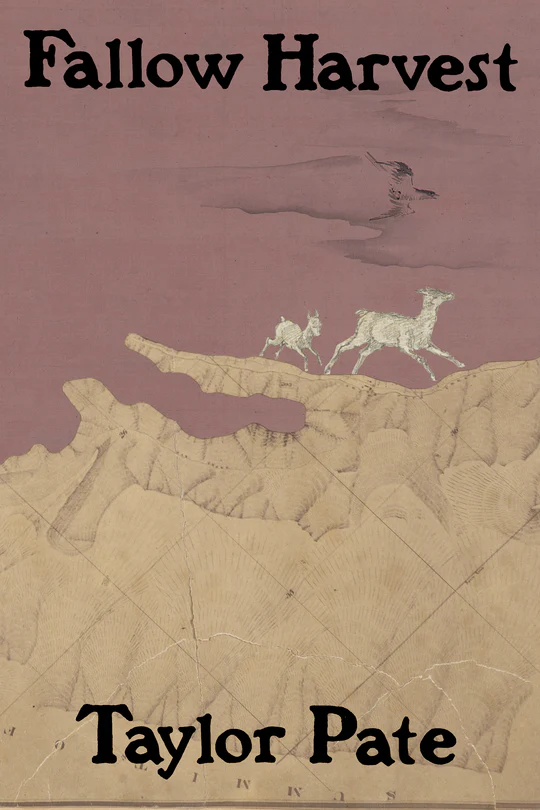
Fallow Harvest is a chapbook of 15 poems that delve into the complex emotions surrounding an abusive relationship and the echoes of generational trauma. Through vivid, surreal imagery, Taylor Pate navigates the terrain of self-loss, entrapment, and the struggle for escape, all while confronting the painful inheritance of familial history. These poems chart the deep, existential journey of searching for meaning in the midst of overwhelming darkness—an emotional landscape where reality is fractured, and identity is tested. The work captures the subtle violence of relationships and the persistent, haunting memories that shape and define a person’s sense of self.
One Last Ripe Life, Angelica Ferrer Recierdo
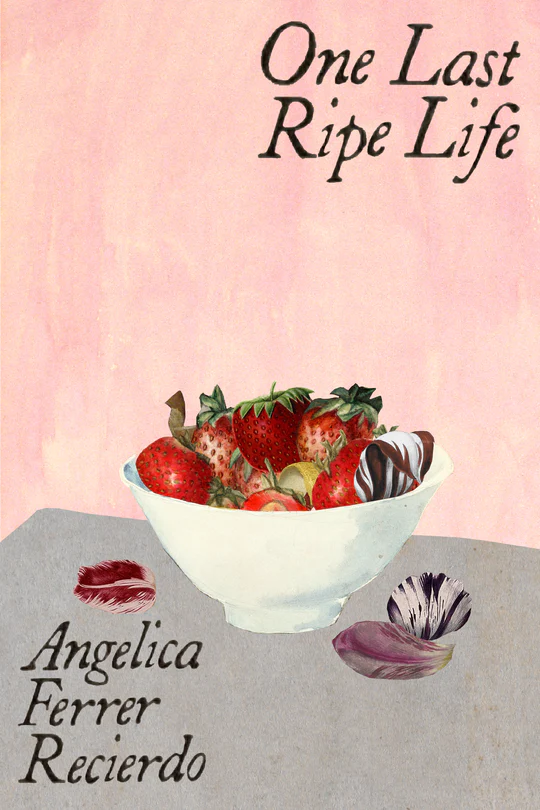
One Last Ripe Life is a debut collection of love poems to children of immigrants, women, artists, lovers, and bon vivants. Stanzas are made up of lines of tender solidarity: “liberation is my homegirl’s laugh when no one is hurting her for once.” Quiet eroticism can be found in the falling of tulip petals, a shared dance, and even in a Portuguese cathedral.
These are poems that let out steam and satisfied sighs. You’ll rub your belly and ache for people and homelands. New neural connections may form and parts of you may pinch and unhinge. The spirits of Toni Morrison and Gwendolyn Brooks appear and tell you to live like the author’s mother: with unblocked vessels wading in the ordinary and glorious.
Raw to the Touch, Jazmine Becerra Green
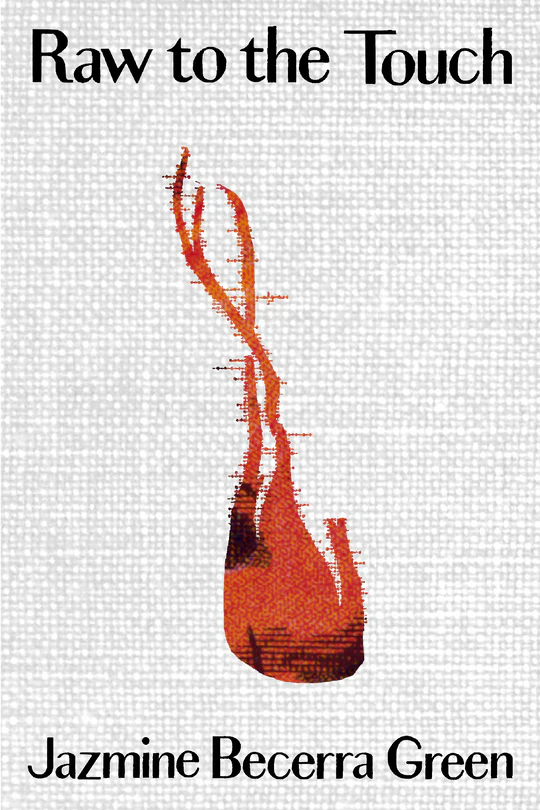
Raw to the Touch is an intimate and unflinching collection of poetry, prose, and personal essays that wander through the journey of matrescence. The chapbook delves into the less examined corners of motherhood, placing the quiet unraveling of identity and the isolation of postpartum depression at the book’s center. Each piece brims with haunting honesty, inviting readers to examine the often unspoken complexities of modern motherhood.
Finishing Line Press
So the Light Stays, Danielle Blinka
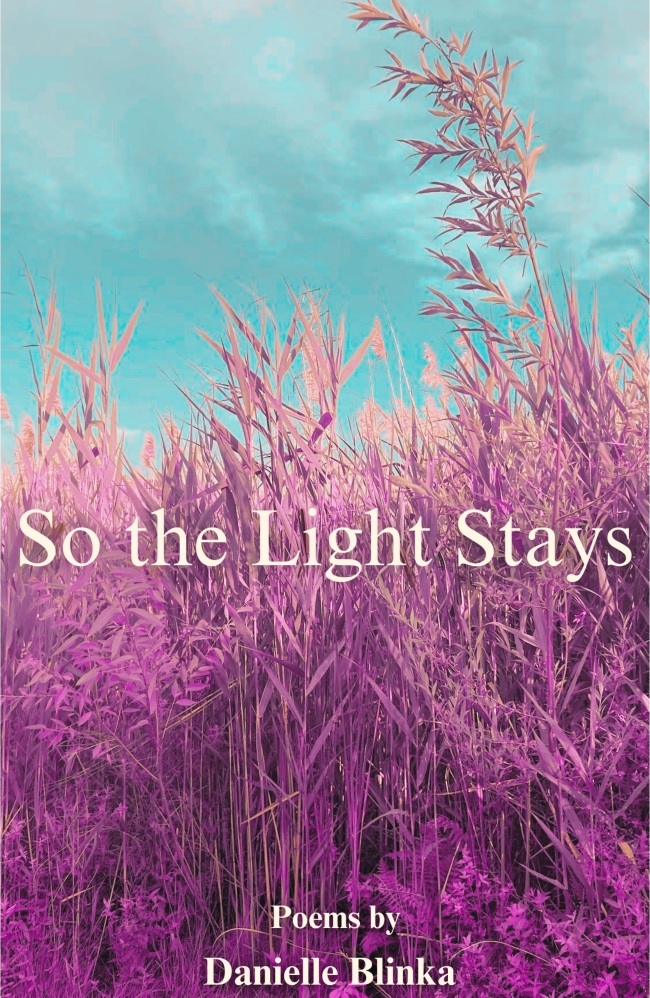
So the Light Stays considers the emotions and vignettes that make life unique and wonderful, juxtaposed against the experience of grief. These poems cover a range of experience, including loss, coping with chronic pain, bad dates, fearless independence, and learning to love yourself. They are at the same time a triumphant expression of self and a mournful ode to all we lose as life unfurls itself.
Who’ll Buy My Posies, Carol Siemering
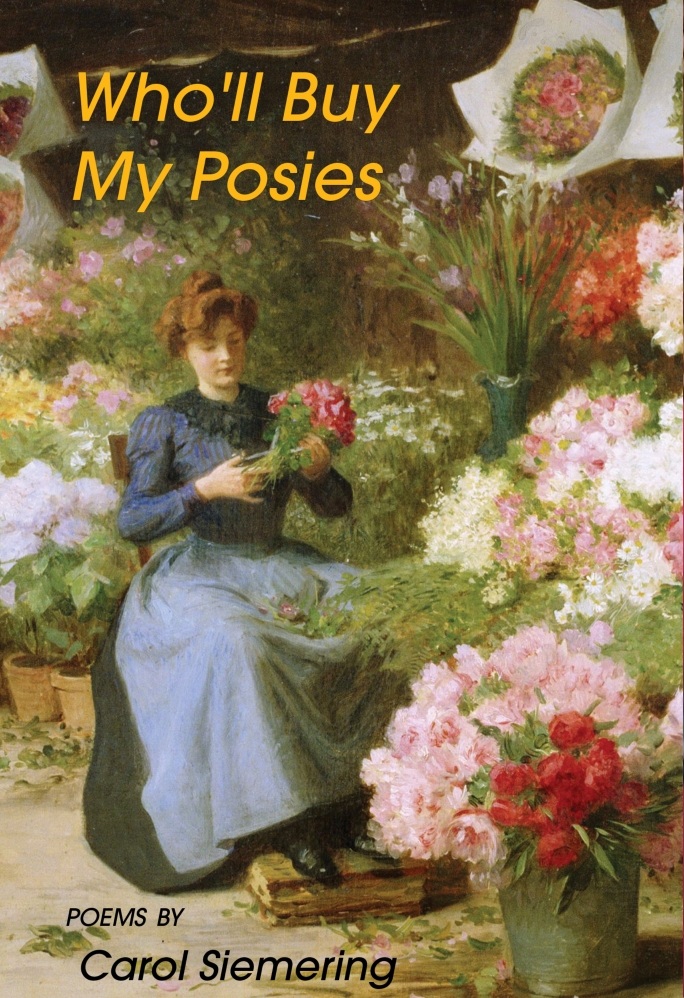
The title of this book Who’ll Buy My Posies comes from a round I learned in 1961, when I was eighteen and living in an international community of women, The Grail. It was there that I learned about women’s power, sensitivity, wisdom, creativity and connection to the Sacred. It was there I learned about women’s capacity to transform themselves and the world. This book’s poems, written over the many years since then, are all about women: women real and imagined, women singly and women together. Oh, and yes, “posies” is also an archaic expression for “poems” (smiles).
Beneath the Blue Umbrella, Karen Marker
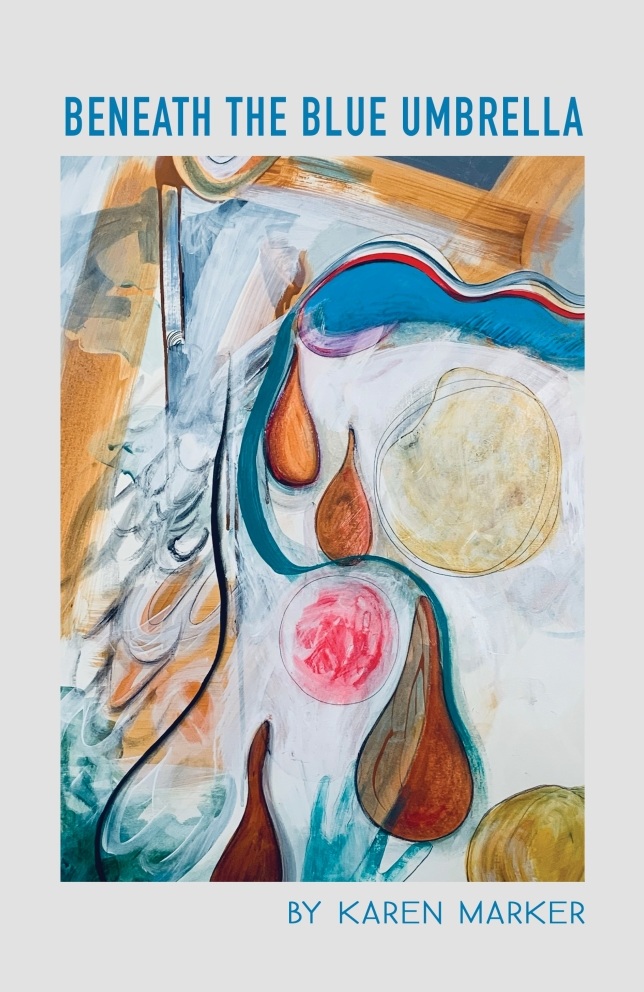
Beneath the Blue Umbrella tells stories of generational trauma and mental illness amid the daily miracles of life and the natural world. With the sudden death of the narrator’s sister comes the freedom to uncover family secrets. Through poetry and short prose, the reader journeys from mental institutions, mid-century bedrooms, cemeteries and battlefields to intimate backyard forests and Rocky Mountains peaks. While the book speaks to the heart of those who have suffered from the stigma surrounding mental illness and struggled to understand the pain passed down through families, ultimately it is about living beneath an umbrella of love, finding interconnection, resilience and healing through our shared rituals and creative work.
Afterbirth, Clara Strong
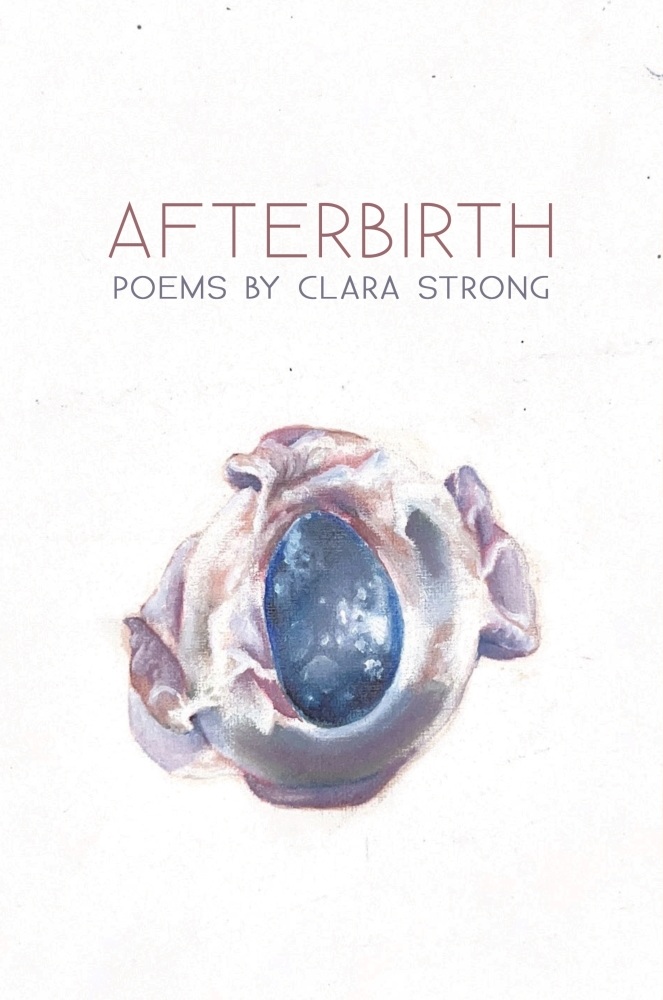
In Afterbirth, Clara Strong delivers a powerful elegy to motherhood and the mysterious miracle of birth—finding new ways to surprise us in these meditative poems about the bond between mother and child, about abiding loss, and most importantly about the body that “yearns to empty.” Strong is not afraid to question the natural order of things, nor is she afraid to praise all the pain that birth brings to bear. –Denton Loving, author of Tamp
What to Keep, Carlene M. Gadapee
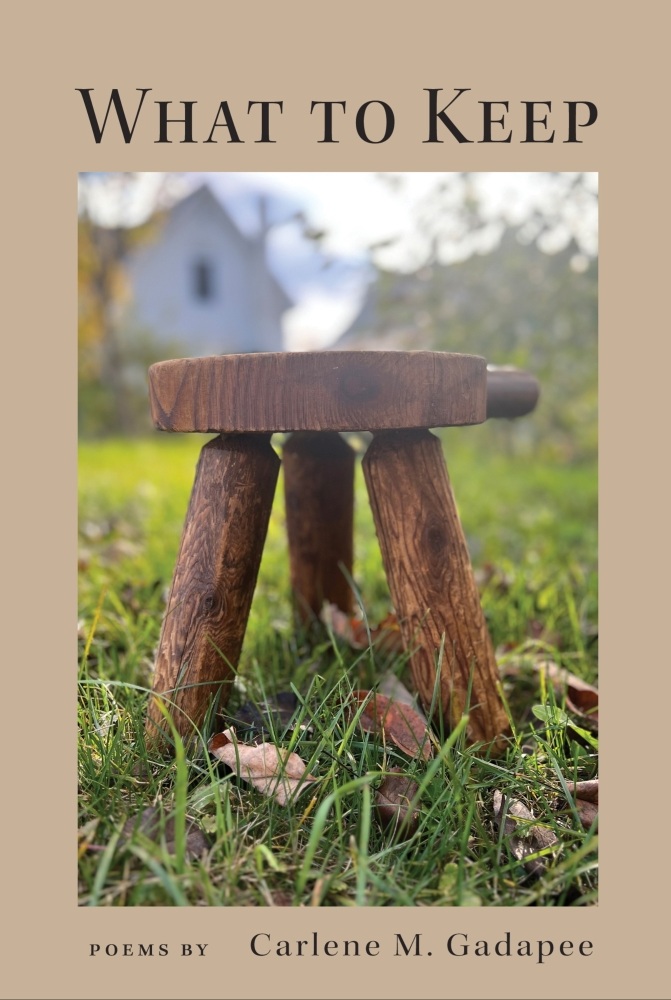
What to Keep is a collection of keen observations: choices made, minor regrets, small successes, and questions asked. There aren’t always answers to the questions, but the poems in this collection explore the particular things and experiences that lead us to them. Readers are invited into the poet-speaker’s musings about childhood, of family, of companionship, and of loss. We follow the speaker as she walks through time: capturing minnows, high school crushes and college mistakes, marriage, the deaths of parents, and finally, a note of hope for the future, whatever it may have in store. In the end, “what to keep” becomes what remains, what is precious, and what forms the foundation of a life filled with joy, sorrow, and finally, of contentment.
Into the Splashing, Deborah Darling
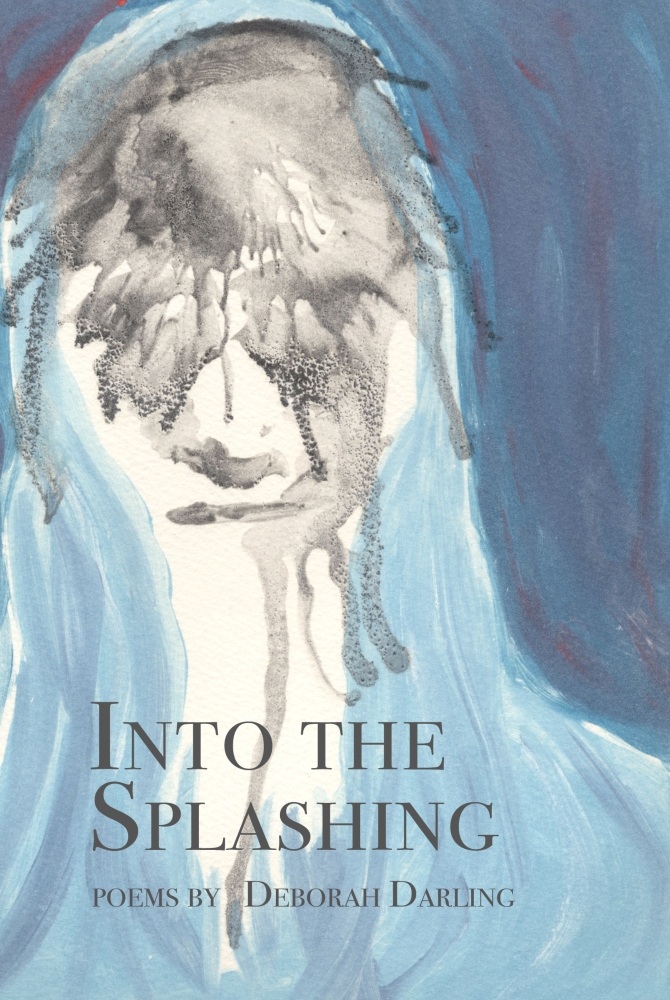
In, among and behind the tragic specifics of loss in these poems lies the unyielding beauty of the elemental, lake, a hard blue sky, a moon shell, rain, things that comfort and appall by changing nothing. This moving collection explores the struggle for acceptance even as it articulates heartbreakingly the plea for the lost to come back to us. –Nancy Eimers, author of Oz and Human Figures
Beyond Expectations, Cada McCoy
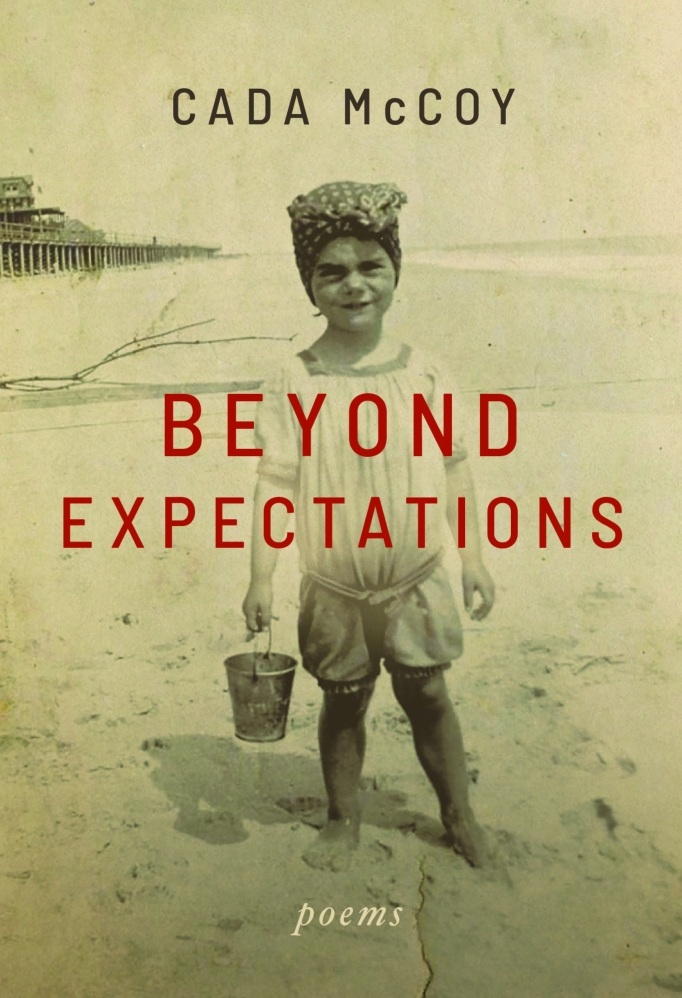
Beyond Expectations inspires and heartens when a child, who once fretted bedtime monsters, strikes out to find many great and wonderous things; offers a breath-holding moment as spring fledglings teeter on the edge of their first precarious flight; affirms an aging community’s wry world-wisdom, underscoring the unaltering lines of human nature’s playbook. Even when expectations become reality-dimmed, unforeseen lessons and unimagined gratitude, often tinged with humor, frequently emerge. This collection was inspired by an observant and sage mother of a past generation who resolutely overcame her own society’s presumptions, proving that life always holds promises well beyond our expectations.
Put a Comma After Love, Norma Ketzis Bernstock
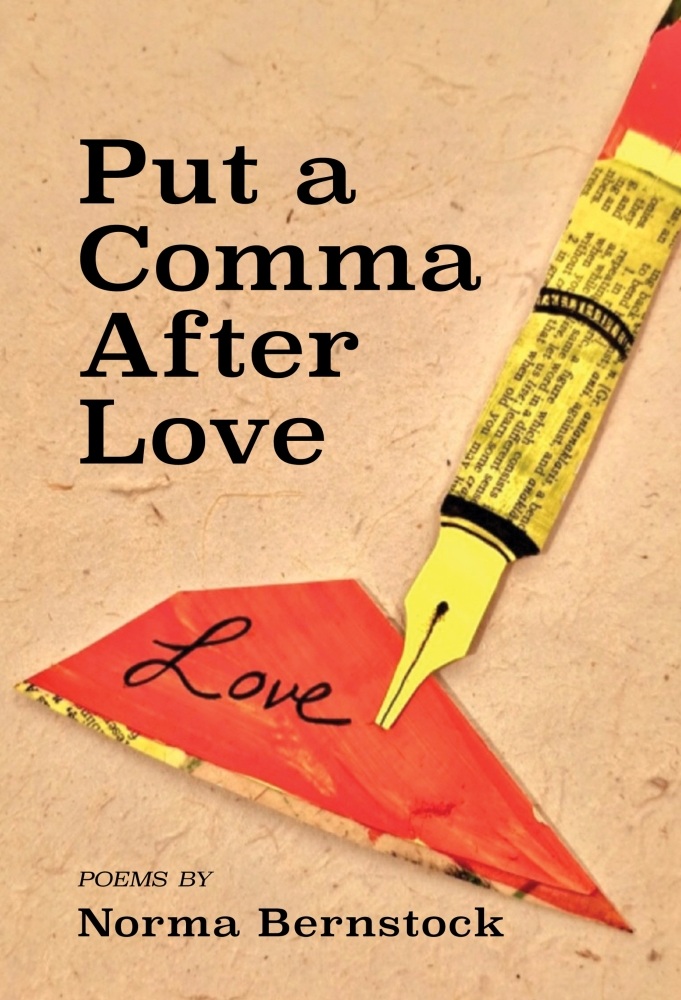
In this, her third collection, Put a Comma After Love, Norma Ketzis Bernstock explores the thoughts, emotions and behaviors that sometimes fill the space after the comma, that place where husbands, wives, lovers and ex-lovers might pause, take a breath and contemplate their actions and the consequences that follow. Though breakups can be painful and disruptive, these poems are never maudlin but written with a sharp wit by a confident woman with a positive outlook.
All the Pretty Things Are Dying, Laurel Maxwell
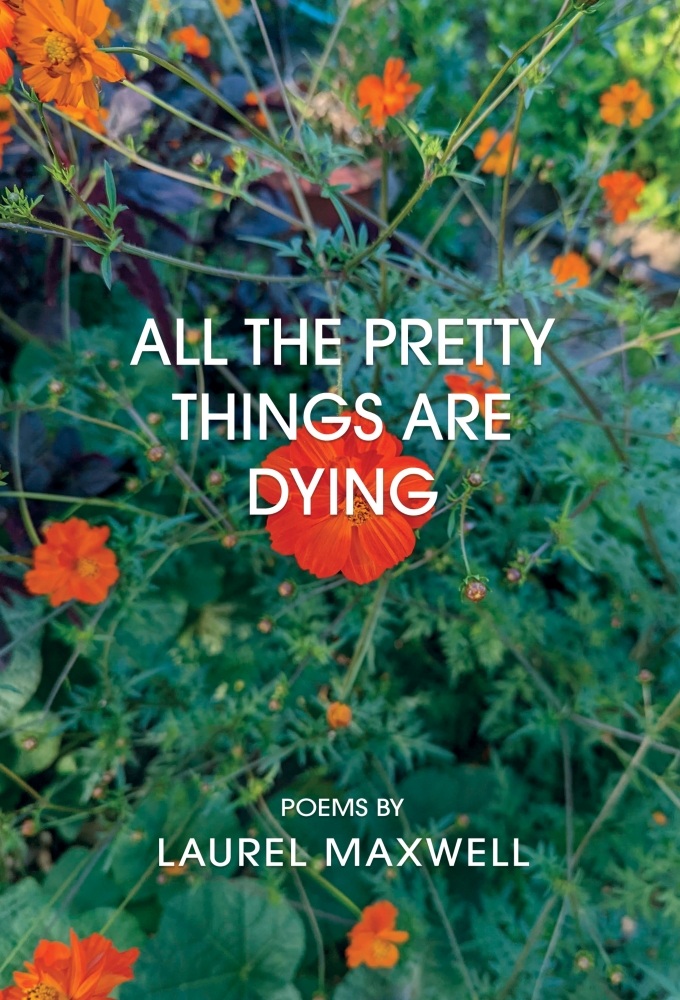
All the Pretty Things Are Dying includes poems that speak to environmental loss, longing for the heart’s desires to be seen and recognized, beauty in life’s everyday moments, and questions that reach into the soul. Many poems rely on close observation of the natural world in order to make sense of our place in the universe and grapple with how to exist while living within a constant state of change and uncertainty.
Orange Persephone, Margaret Lee
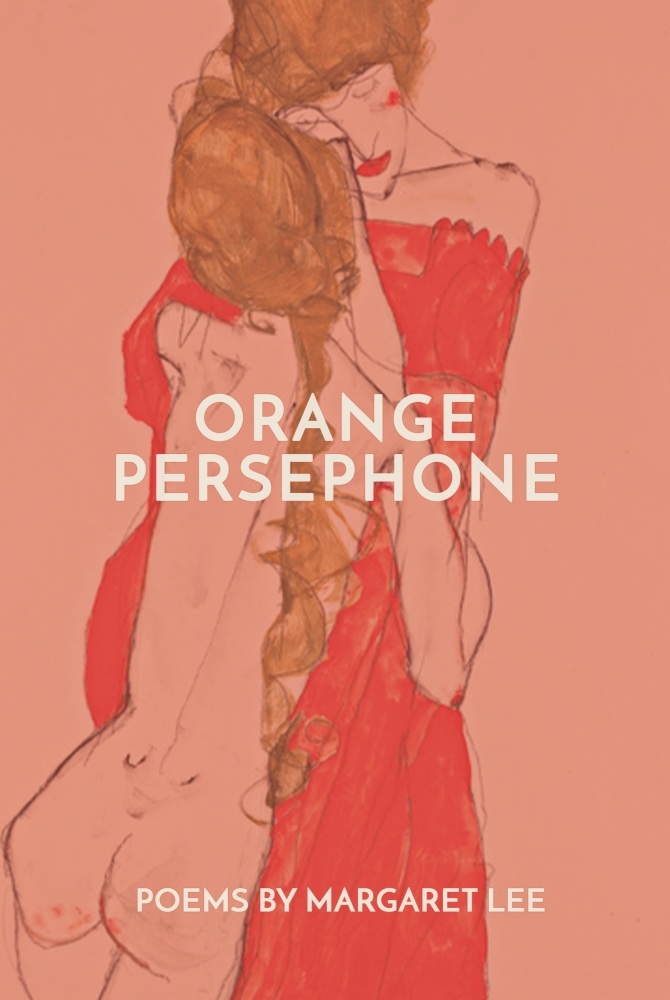
Margaret Lee’s fourth chapbook explores depths of a mother’s love amid tragedy and loss. Orange Persephone invokes the mythical story of mother and daughter, Demeter and Persephone. Demeter, Greek goddess of fertility and harvest, periodically loses her daughter, Persephone, to Hades, god of the underworld, who holds Persephone hostage there. The poems in Orange Persephone cry out in pain, burrow into grief, seek solace in a nurturing earth, and range the unlimited scope of a mother’s love for her offspring.
Skipping Stones on the River Styx, Elizabeth Rae Bullmer
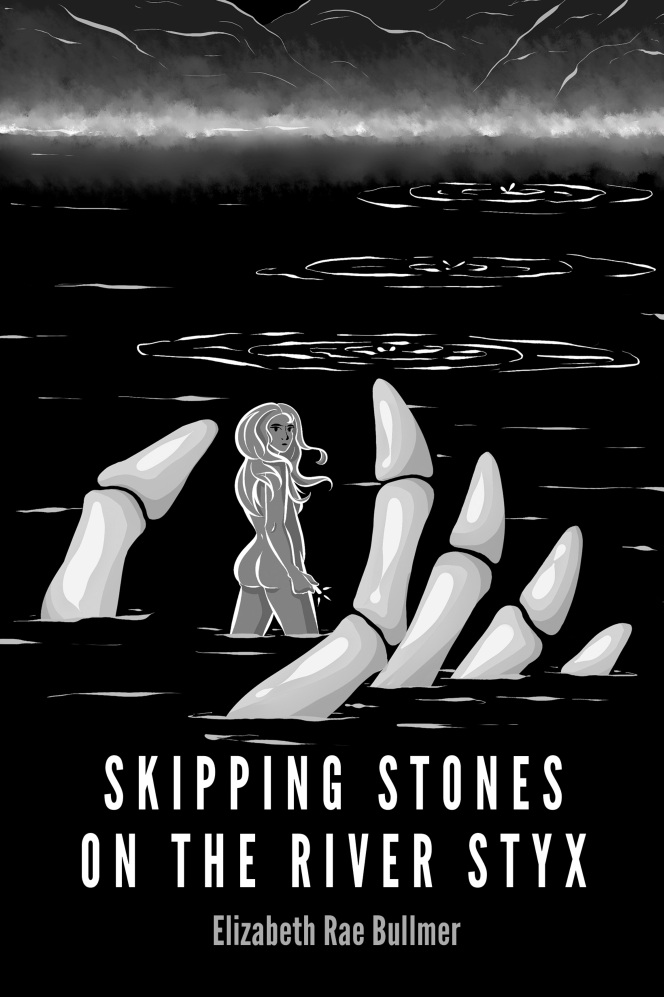
Skipping Stones on the River Styx seeks to define the human experience of loss, grief and death through a deeply personal lens. The poems explore physical loss of loved ones, the energy of objects left behind and the desire to assign meaning to what remains. The speaker in this collection wants to heal and the journey skips from conversations with the dead to contemplation of one’s own death, which leads back to gratitude for life, despite the pain that living can bring. Open, honest emotional vulnerability, combined with a playful and fantastic imagining of the afterlife make this collection a unique exploration of what we all must face in our lives: Death.
Naked Rib, Deborrah Corr
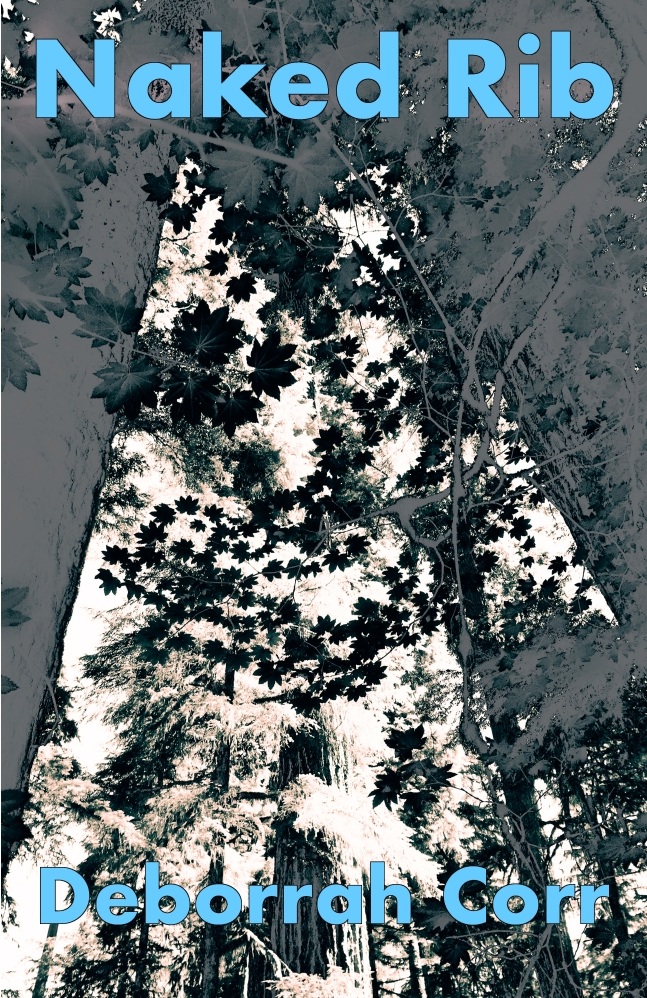
In Naked Rib we begin in the Garden with Eve, the first female, and continue through the embodied experience of one woman’s life. The verses speak of a childhood deeply connected to the earth and explore a yearning to live creatively without restriction. The lines of the poems lead the reader through young adulthood, motherhood and the intensity of losing both a husband and a grown daughter to cancer. Learning to continue on with gratitude and a renewed sense of this earth’s beauty are the shores on which the final poems land.
Fragile Bones, Fierce Heart, Lisa Shulman
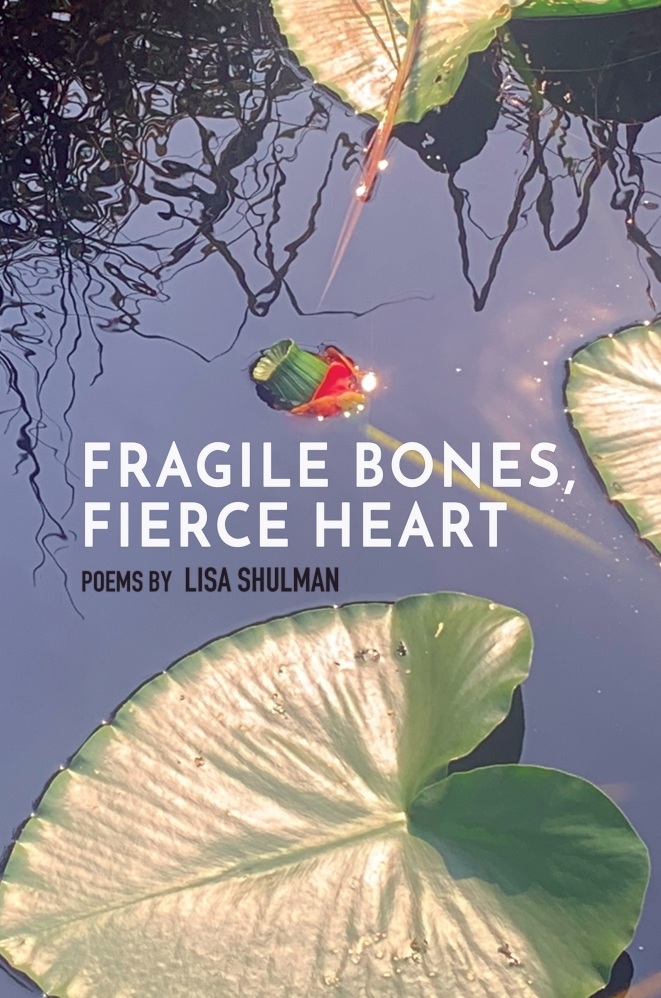
The poems in Fragile Bones, Fierce Heart weave together observations on nature and the human experience, exploring such topics as climate change, social justice, school shootings, and grief. With vivid imagery and lyricism, these poems invite the reader to connect with the natural world, with hope, and with each other.
Lisa Shulman is a writer, children’s book author, and teacher. Her work has appeared in ONE ART, Catamaran, the San Diego Poetry Annual, Minnow Literary Magazine, The Best Small Fictions, California Quarterly, and a number of other journals and anthologies.
A Heavenly Symposium, Claire-Elise Baalke
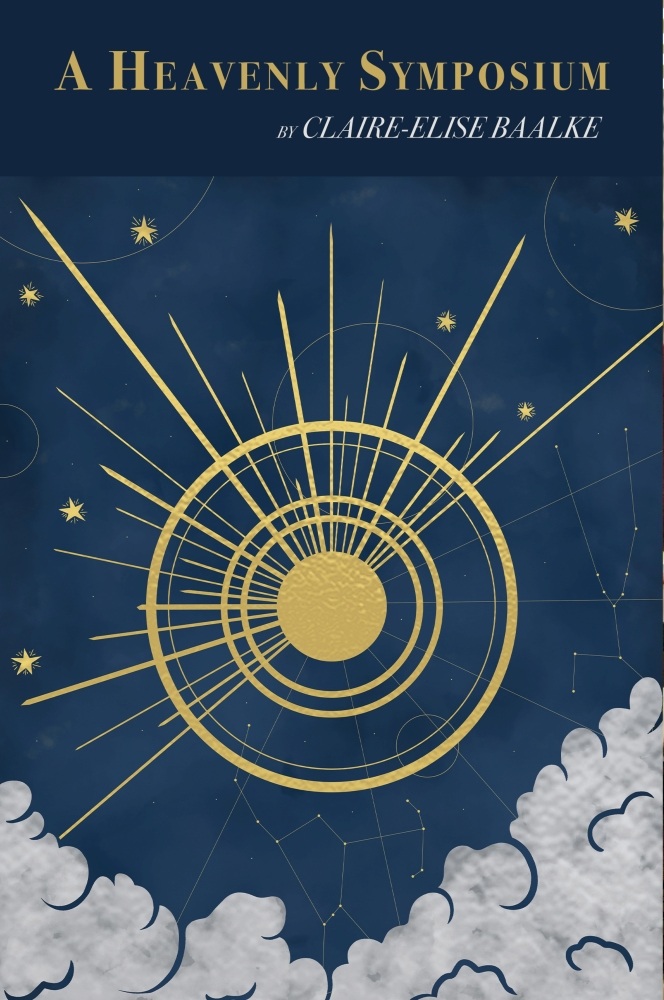
The common definition of symposium is a collection of papers on a particular subject. Another, more antiquated meaning of the word is a drinking party or convivial discussion, especially as held in ancient Greece. This chapbook is written as a kind of conversation in the same sense as the definitions of “symposium” between the author and myth, psychology, astrology, history, and science of the planets. All of these ideas come together to display the sense of apotelesma or connection between human nature and the influence of the stars on human destiny and how one might pull together such fragmented ideas of one very specific (or not) thing, the heavenly bodies.
Almanac of Reckoning, Sandra Salinas Newton
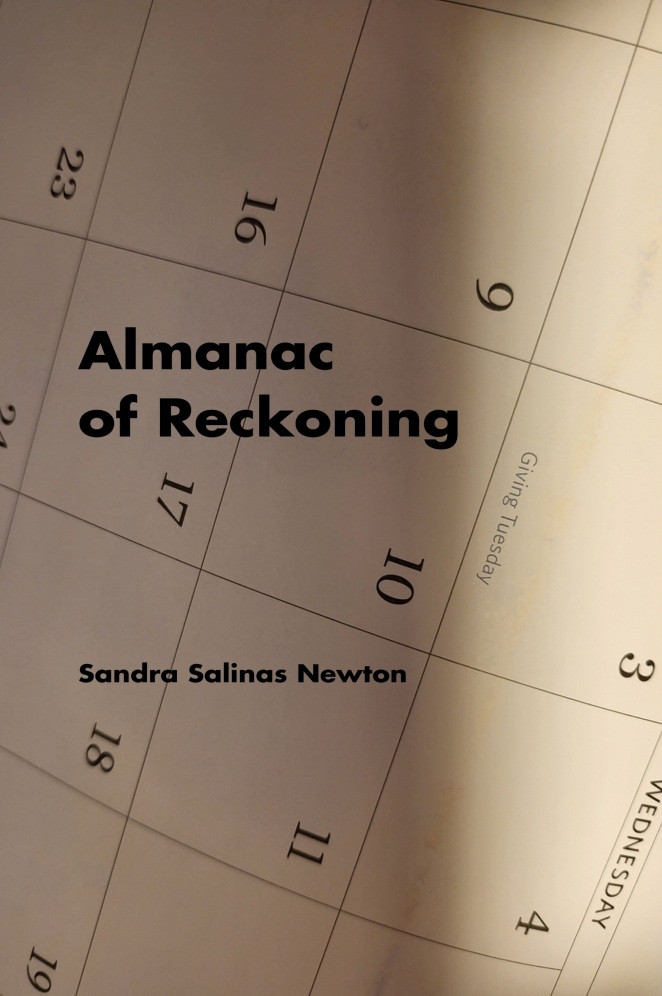
Almanac of Reckoning is a collection of lyrics that charts the intersections between observation and experience, memory and desire, loss and consequence. Its poems resonate with the sights and sounds of nature viewed through the human emotions of passion, grief, and remorse. Despite what this poetry asserts about the generally sad condition of life, it nevertheless acknowledges that there is much to be learned – and thus, celebrated – about ourselves. As long as we have voice to say, “This is the worst,” the very utterance of that voice contradicts itself, because our power to recognize our faults and weaknesses is the reckoning that leads us to redeem ourselves.
DHARMA’S DANCE, Christine Poythress
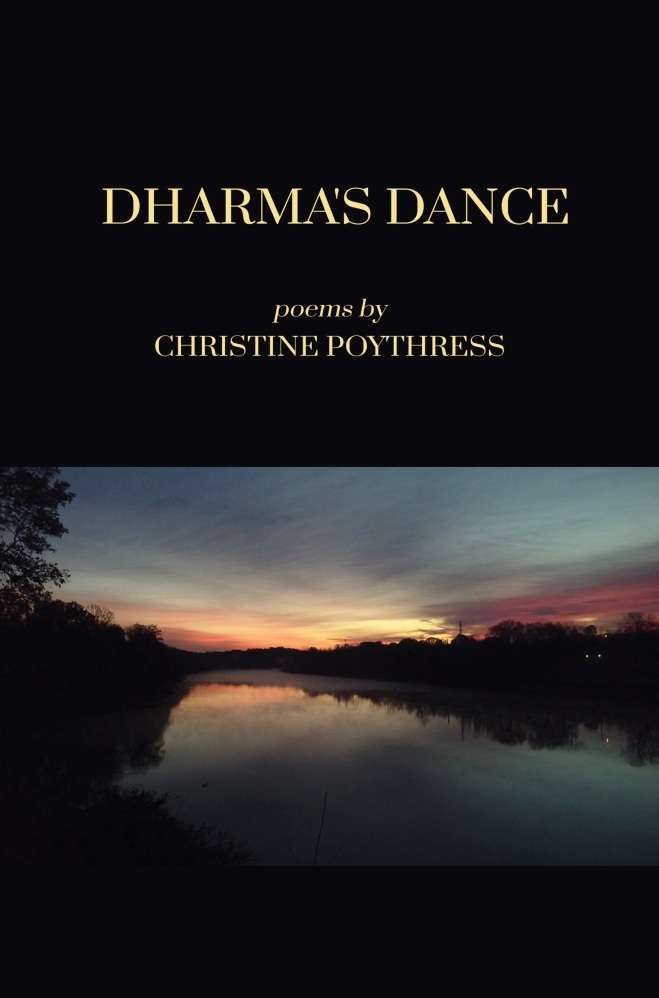
In Dharma’s Dance, Christine Poythress‘s debut collection, she traces her journey in search of love or a Mr. Right from the repressive South to her free-loving twenties in 1970s California, and to New York, culminating with the wisdom of age and a sense of where the soul resides. Or as Poythress writes, “This life, the only one we perceive, isn’t everything, so I believe.” This New Age collection is at once serious, filled with wit, and grounded in the mystical.
Ironweed, Jackie Ison Kalbli
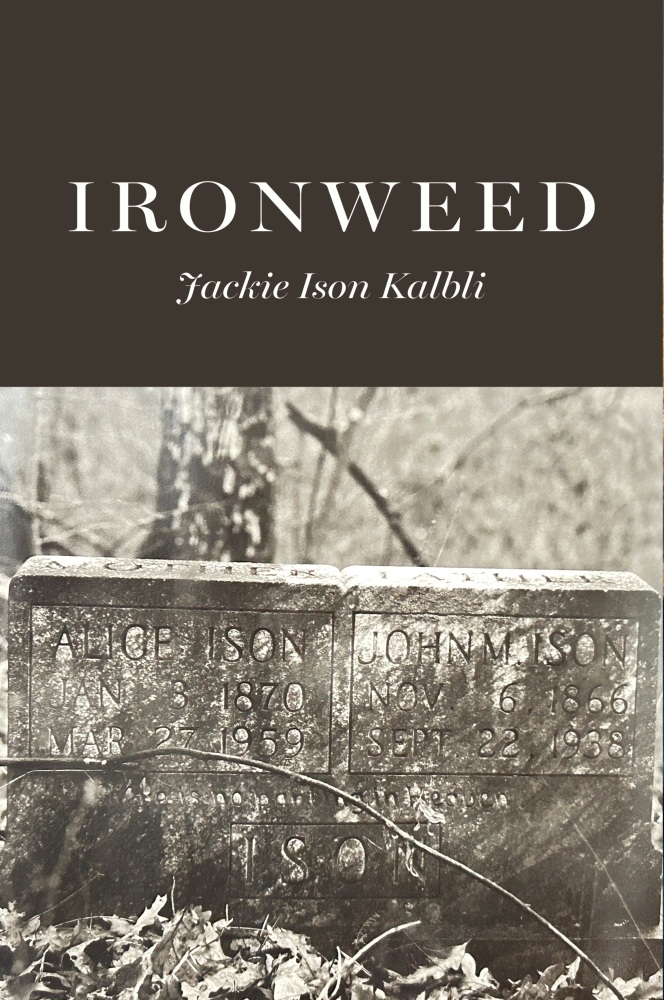
Ironweed is a glimpse into a family who migrated to Southwest Ohio from Elliott County, Kentucky, in 1950. North across the Ohio, there was economic opportunity. But the journey across by car took them to a place as strange and lonely as their original ancestors experienced coming from the British Isles over 200 years ago. Lack of social connection, language, and cultural differences were significant barriers to the success of this isolated family. The book’s author begins the story at the point when there is a tragic loss in the family, and she begins to search for comfort and purpose through poetry and remembered experiences. The quest is not resolved, and grieving what is lost continues. Ironweed is a wildflower that grows tall in the fields. It is becoming scarce, but when equally challenged against commercial annual blooms, the wildflower persists.
Tendering the Body, Brittany Brewer

Tendering the Body is a collection of offerings—to queer adolescen[ce/ts], [found] family, and bodies that endure. The poems suture together backyard bonfires and secrets at Steak n’ Shake, ruminations on body hair and therapy and friendship, and bits and pieces of a grieving body newly acquainted with illness. This book is a meditation on the juxtaposition between the visibility of bodies and the invisibility of their affective experiences made material.
In Such Wonder, Jonel Sallee
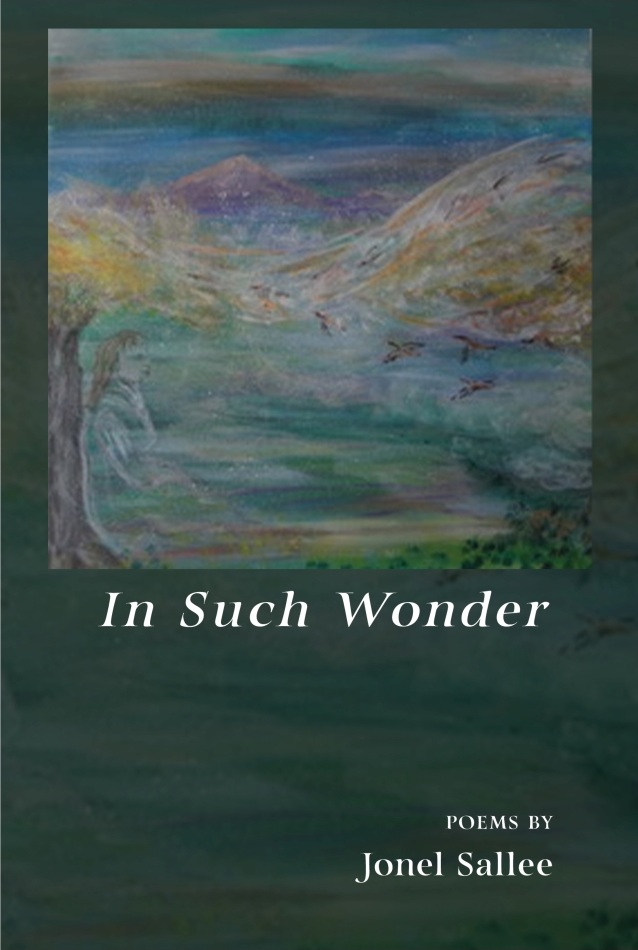
A Matisse or a Lorrain or a starlit night sky draws you into its canvas and you become part of its story; a haunting melody or the piercing eyes of a songbird hold you; raindrops on a pond or a sudden deluge on an interstate lead you to questions that have no easy answers. These are unexpected, unbidden moments, always fleeting and always challenging to ordinary perception. The poems in In Such Wonder spring from such moments and invite the reader to linger among the crucial questions and contemplations that mystery always evokes.
A Cage in Search of a Bird, Kathleen Holliday
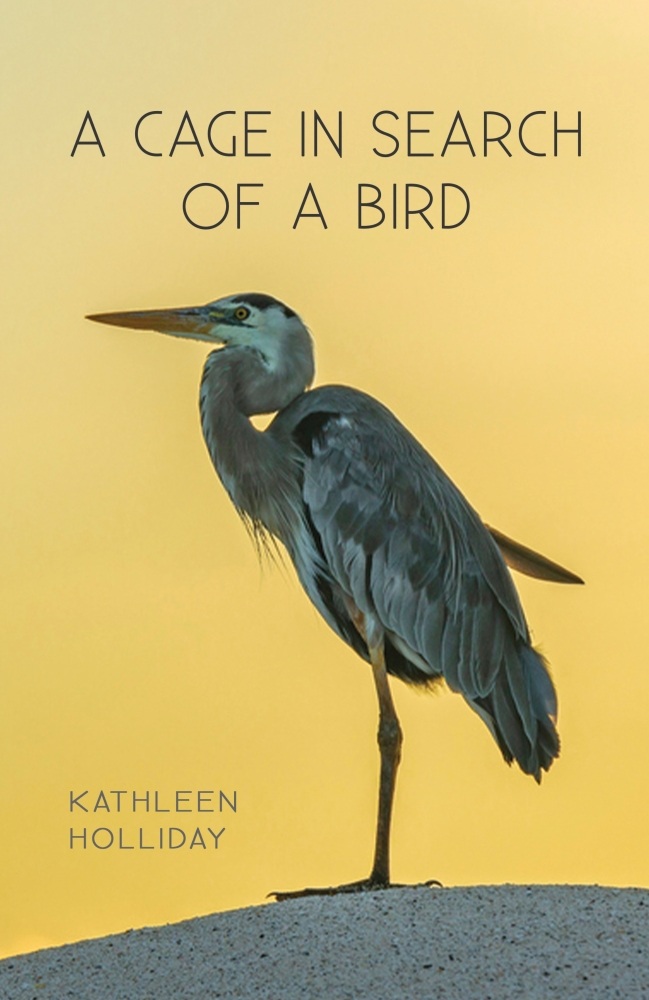
Rich with imagery, irony, and word-play, the poems of Kathleen Holliday’s third chapbook, A Cage in Search of a Bird range from narrative to brief, all with startling impact. There are poems of family: If My Father Could Ask Why I Have Tattoos and death: Rounded with a Sleep. The natural world appears—though in surprising ways: Native Tongue, A Walk in the Woods; as does eros: The Final Problem, My Near-Death Experience. A long sojourn in Minnesota results in The Fifth Month of Winter. The final poem, Rafting, is a gesture toward connection in these dark times.
Don’t see a poetry chapbook published between 2/1 and 2/28 here? Contact us to let us know!

Contents
Book Excerpt: Further Thought by Rae Armantrout
Read the featured Excerpt Poem of the Month for January 2025, “Further Thought” from Go Figure by Rae Armantrout, along with a few words from the poet.
Read five poems by poet A.L. Nielsen, our first biweekly poet of the Winter 2025 issue, along with a few words about the poem “When We Walked”.
Chapbook Poem: The Poem as an Act of Betrayal by Benjamin S. Grossberg
Read the featured Chapbook Poem of the Month for January 2025, “The Poem as an Act of Betrayal” from As Are Right Fit by Benjamin S. Grossberg, along with a few words from the poet.
Jan. ‘25: Year One: What worked, what didn’t, and what to expect
Editor Aiden Hunt looks back at our first year and discusses changes to Philly Poetry Chapbook Review in 2025.
Three Poems by Shelli Rottschafer
Read three poems by poet Shelli Rottschafer, our second biweekly poet of the Winter 2025 issue, along with a few words about the poem “Because We Remember.”
Dancing With the Dead: On Ragnarök at the Father-Daughter Dance by Todd Dillard
“Todd Dillard successfully transgresses the unspoken cultural embargo on work that grapples with life during the COVID-19 pandemic in his new chapbook, Ragnarök at the Father-Daughter Dance.”
Read three poems by poet Wendell Hawken, our third biweekly poet of the Winter 2025 issue, along with a few words about the poem “First Hurt”.
Book Excerpt: Slow Chalk by Elaine Equi
Read the featured Excerpt Poem of the Month for February 2025, “Slow Chalk” from Out of the Blank by Elaine Equi, along with a few words from the poet.
Chapbook Poem: Caro M. by Angela Siew
Read the featured Chapbook Poem of the Month for February 2025, “Caro M.” from Coming Home by Angela Siew, along with a few words from the poet.
Read four poems by poet Natalie Marino, our fourth biweekly poet of the Winter 2025 issue.
A Conversation with Kate Colby
Poet Kate Colby discusses her latest chapbook, ThingKing, her creative writing practices, and her penchant for poetry chapbooks with PCR Editor Aiden Hunt in this interview piece.
Read three poems by poet Adele Ross, our fifth biweekly poet of the Winter 2025 issue, along with a few words about the poem “Heavy Water”.
Book Excerpt: The Self-Combed Woman by Laynie Browne
Read the featured Excerpt Poem of the Month for March 2025, “The Self-Combed Woman” from Apprentice to a Breathing Hand by Laynie Browne, along with a few words from the poet.
Chapbook Poem: To Let Go by Deirdre Garr Johns
Read the featured Chapbook Poem of the Month for March 2025, “To Let Go” from Fallen Love by Deirdre Garr Johns, along with a few words from the poet.
Read four poems by poet Sarena Tien, our sixth biweekly poet of the Winter 2025 issue, along with a few words about the poem “Mother Tongue”.
Life’s Lazy River Journey: On Tributaries by Aspen Everett
“A thread of adulation for matriarchal spirituality and the lifegiving value of water runs through the collection. Its first poem pays homage to [Toni] Morrison.” Read the full chapbook review by Shelli Rottschafer.
Three Poems by Jeanne Bamforth
Read three poems by poet Jeanne Bamforth, our seventh and final biweekly poet of the Winter 2025 issue, along with a few words about the poem “New Course”.
